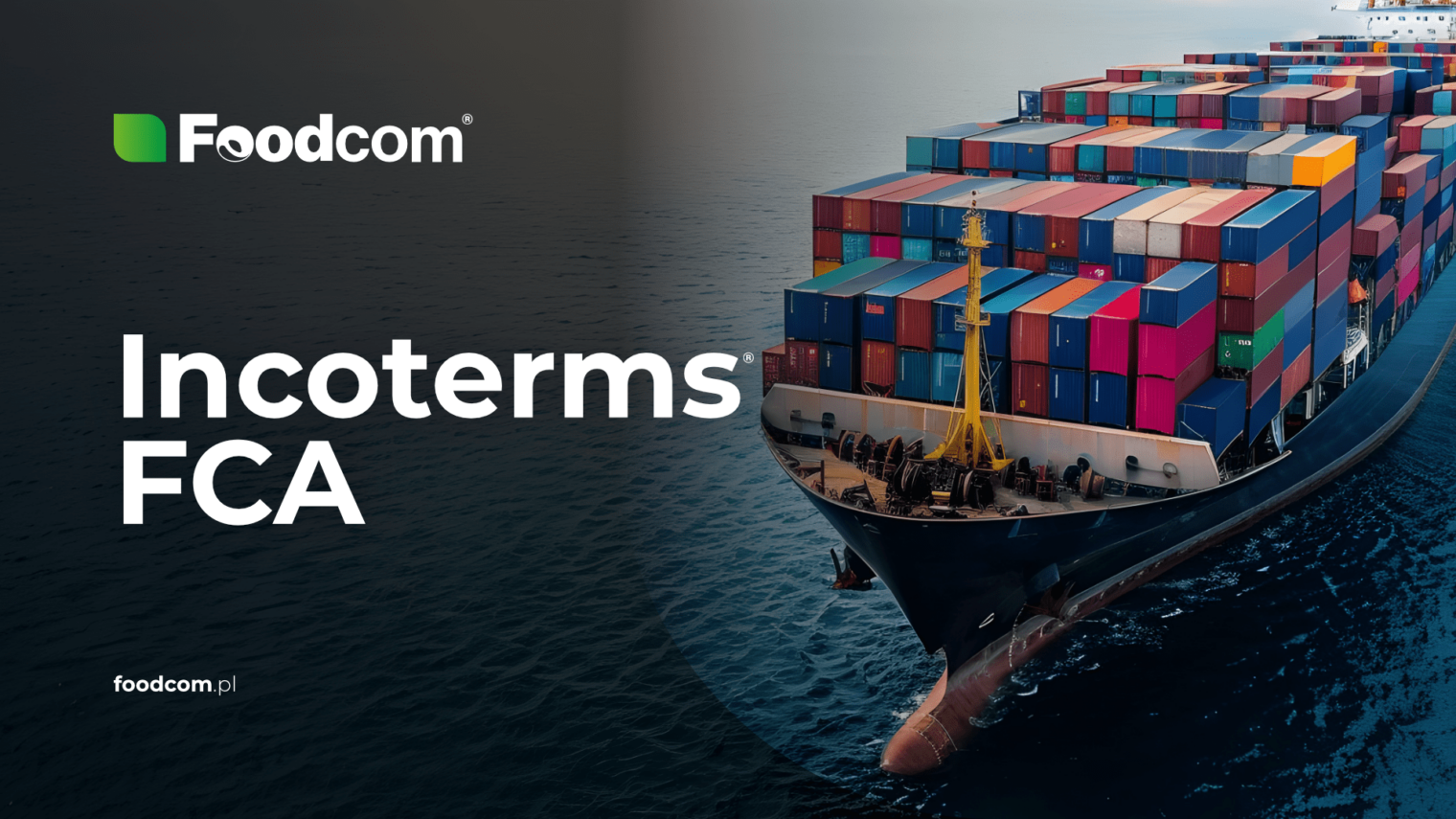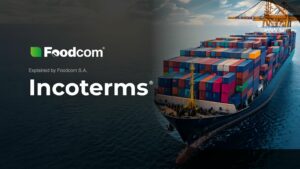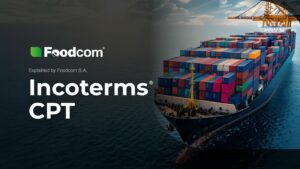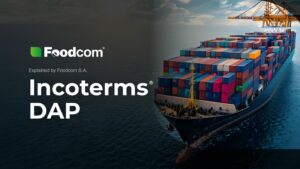Incoterms® FCA (Free Carrier) is an international trade standard by which a seller delivers goods to a designated place indicated by the buyer. It is a flexible rule that allows the responsibility associated with the transportation of goods to be shared.
What are Incoterms® rules?
Incoterms® rules (International Commercial Terms) are a set of standards created by the International Chamber of Commerce (ICC) to facilitate international trade. They introduce clearly defined rules regarding the obligations, costs and risks borne by the parties to a transaction.
Incoterms® FCA – what does it mean?
FCA, or “Free Carrier,” is one of the Incoterms® 2020 rules, which states that the seller delivers the goods to a carrier or other entity designated by the buyer at an agreed location.
FCA delivery involves the seller bearing the transportation costs and risks associated with the goods until they are handed over to the carrier. Further transport risks and costs are borne by the buyer.
FCA delivery terms and conditions
FCA delivery terms specify two possible delivery locations. If it is at a facility owned by the seller – delivery is considered completed when the goods are loaded onto the means of transportation designated by the buyer.
The second option is delivery to a location not owned by the seller, such as a port terminal. In this case, the delivery can be considered completed when, after loading on the seller’s means of transportation, the goods arrive at the place designated in the contract and, ready for unloading, are handed over to the carrier or other person designated by the buyer.
Allocation of costs
The seller shall bear the costs:
- related to the delivery of the goods to the agreed place (e.g., terminal, carrier’s warehouse);
- loading, if the place of delivery is at the seller’s facility;
- export clearance and all formalities related to the export of the goods.
The buyer bears the costs of:
- transportation from the moment the goods are taken over by the carrier;
- insurance of the goods, if any;
- import clearance and all import-related formalities;
- unloading the goods at the destination.
Division of responsibilities
As part of the FCA delivery, the seller is obliged to deliver the goods to the specified place and to load them onto the means of transportation, if the delivery takes place at his plant. The seller must also ensure that the goods are properly packaged and labeled, and provide the buyer with the necessary documents.
The buyer is responsible for arranging transportation from the moment the goods are handed over to the carrier, as well as for insuring them, if any. The buyer must also complete import formalities, as well as arrange for the unloading of the goods at the destination.
The moment of transfer of risk
With an FCA, the risk of damage or loss of the goods passes to the buyer when the goods are delivered to the carrier or other entity designated by the buyer.
Forms of transportation
The FCA rule is flexible and can be applied to various forms of transportation, including road, rail, sea and air.
What should be kept in mind when choosing Incoterms® FCA?
When choosing Incoterms® FCA, it is worth remembering that although the seller bears the cost of delivering the goods to the place agreed with the buyer, the risk of the goods passes to the buyer as soon as they are handed over to the carrier. The buyer should carefully determine the place of delivery and make sure that the selected carrier is adequately equipped to handle the goods in question, as well as consider taking out insurance.
FCA vs. other Incoterms® rules
The EXW (Ex Works) and FOB (Free on Board) are often compared to the FCA rule. In EXW, all the costs and risks of transportation are borne by the buyer, while in the FOB rule, the seller is only responsible for the goods until they are loaded onto the ship. In FCA, the seller is also not responsible for the goods until the goods are delivered to the customer, but only until they are handed over to the carrier.
Trading with Foodcom S.A.
Foodcom S.A. traders, consulting with experienced logisticians, work with customers to select the optimal mode of transportation for a given transaction. FCA transportation is often chosen by buyers who prefer more control over the transportation of their goods, or who have better transportation arrangements or use their own carriers. FCA is often chosen for international trade, where the variety of transport modes allows the logistics process to be tailored to the specifics of the goods and market requirements.








